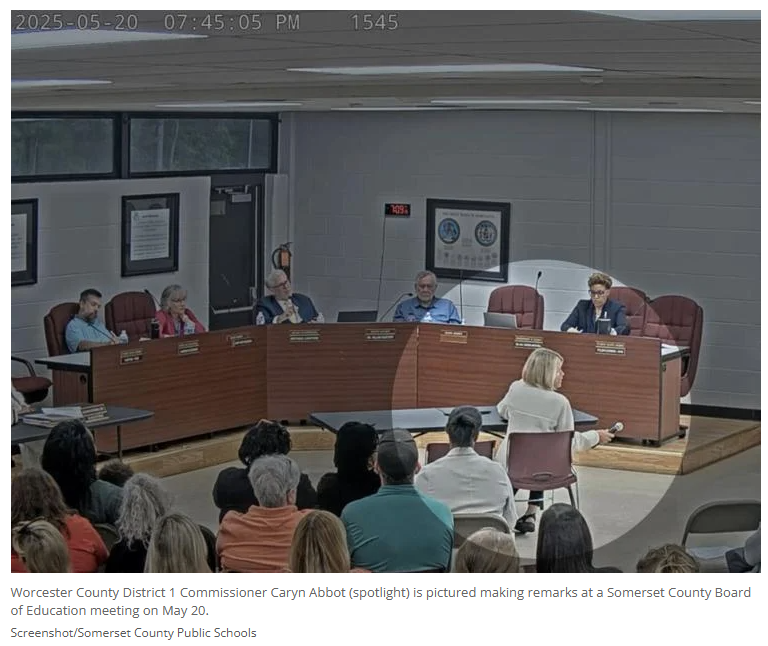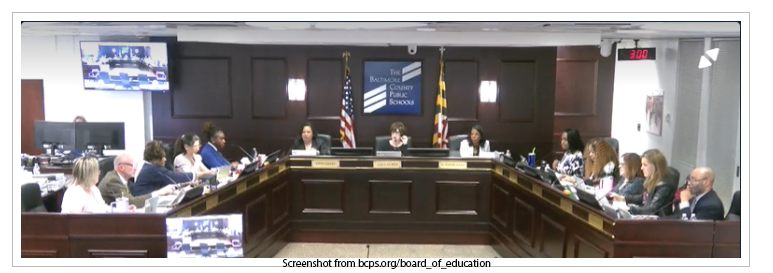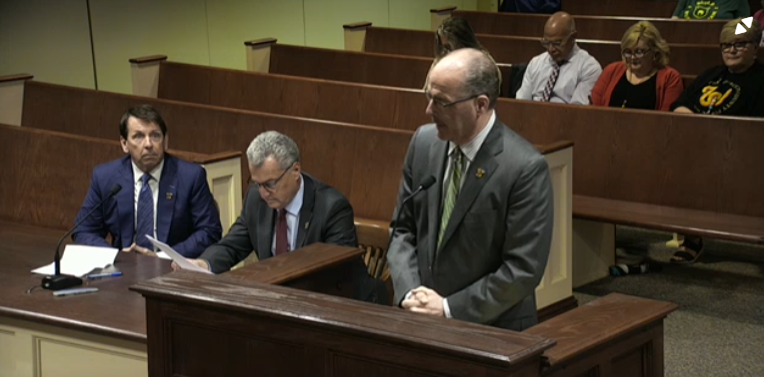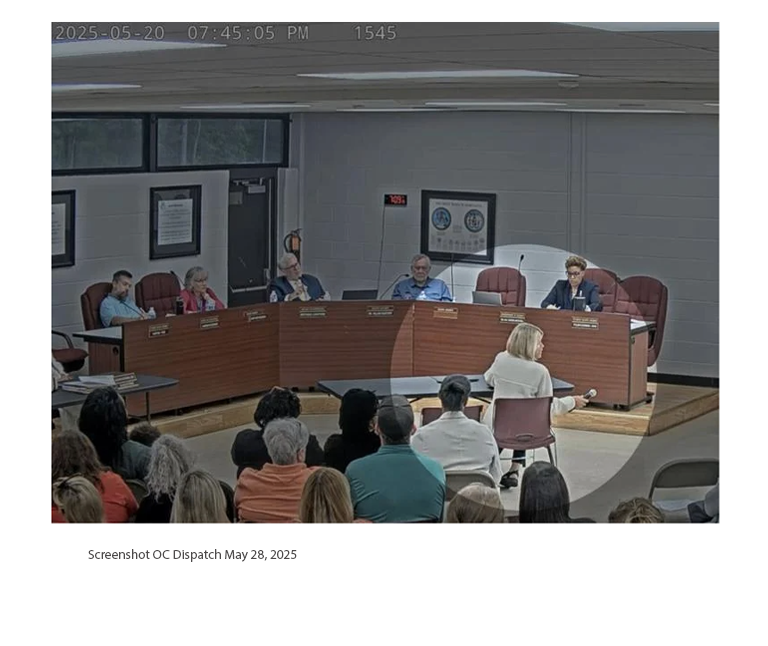
District Failed to Protect Nonbinary Student From Harassment, Federal Investigation Finds
A Wisconsin district has voluntarily settled a federal investigation into how it responded to the harassment of a nonbinary student. But for the student in question, it’s a bit of a hollow victory—they’d already left the district.
An investigation conducted by the office for civil rights within the U.S. Department of Education into the Rhinelander School District’s treatment of a nonbinary high schooler in the 2021-22 school year found several incidents of sex-based discrimination that the district knew about and failed to take action against. OCR released the results of the investigation on July 6.
The district required the student to only take in-person classes with “teachers who are allies,” after the student reported several incidents of misgendering, discrimination, and sex-based harassment, according to the investigation. That meant the student could only take three classes in person, and do their other schoolwork through independent study.
The district “burdened the student for their own harassment,” according to Assistant Secretary Catherine Lhamon, who heads the OCR.
In many instances nationwide, bullying and harassment of LGBTQ+ children by students in schools spill over into communities, leading to a severe decline in students’ mental health and well-being.
This leads the families of these students to have no choice but to relocate and move away from these school districts, according to Michael Garrett, communications manager for the Rainbow Youth Project, an LGBTQ+ advocacy organization.
Over the last eight months, the Rainbow Youth Project has received three to five calls every day from families of LGBTQ+ students, asking for relocation assistance, because of the bullying and harassment their children are facing bullying in schools.
“When you have parents who are supportive, and their child is texting them and calling them from school crying because of everything that’s going on, it makes life very difficult,” Garrett said.
“So even if you end up filing an OCR complaint, the damage is done before those complaints are even filed.”
Student’s mom was worried about their well-being
In the Rhinelander case, the student’s mom told USA Today that she had been worried for her child’s well-being and mental health after years of being called derogatory terms at school. The family felt “ostracized and pushed out by our community,” she said.
The family declined requests for an interview with Education Week.
The family briefly moved out of state after filing the OCR complaint in 2021, but returned to a different town in Wisconsin, not returning to Rhinelander schools. After almost two years, OCR’s conclusion that her child had been regularly harassed at school without redress made her feel vindicated, the mom told USA Today.
Lhamon says it is not common for a school to exclude a student entirely when they are experiencing harassment.
“As a mom, and as a chief civil rights enforcer in the nation’s schools, I am sick that the student experienced, for the length of time that the student did, ongoing harassment without redress,” she told EdWeek.
The district said that it was committed to “providing a benefit to all students instead of fighting over the merit of the allegations in the complaint,” according to an emailed statement to EdWeek from Superintendent Eric Burke.
“We continuously provide training to our students and staff, so agreeing to provide more training was a commitment we have already embraced,” Burke said in the statement.
The agreement includes a meeting with the former student and parent to determine whether compensatory instruction, such as grade adjustments or tutoring, is needed for the in-person time they had to miss, even though they’re no longer part of the district.
The district did not respond to questions about the meeting and its outcome.
The district will also conduct staff and student training on sex-based harassment, and develop a reporting system for all incidents of sex-based discrimination or harassment, according to the agreement.
OCR: Trans and nonbinary students face discrimination
This case is part of a more significant problem of protection from sex-based discrimination for trans and nonbinary students at school, Lhamon said.
“We see a variety of ways that discrimination can manifest for students in school who are nonbinary or transgender,” she said.
Some trans and nonbinary students have had their rights restricted through several district policies and state laws that limit their bathroom use and athletic participation. Some district policies and state laws also bar teachers from using affirming pronouns for these students.
The Rhinelander district has policies banning sex-based harassment, but failed to enforce those to protect the nonbinary student, and therefore violated the student’s Title IX rights, the OCR investigation found.
Title IX prohibits sex-based discrimination within a school or any other educational program that receives federal funding.
“I think it’s important to be clear that existing federal civil rights law, including Title IX, and the regulations, protect nonbinary students from harassment and discrimination,” Lhamon said.
“And this is an example of robust protection available under the law.”
Frequent harassment and misgendering at school
Before the nonbinary student returned to in-person school in the 2021-22 school year, the associate principal had emailed all teachers notifying them of the new name and pronouns that would affirm the student’s identity, according to an OCR letter to the district.
Within the first two days of returning to school, the student faced several incidents of other students name-calling, mocking, and misgendering them, according to the investigation. At least one teacher also repeatedly misgendered the student in her classroom, and in email correspondences with the student and parent. That teacher eventually requested that the nonbinary student be removed from her class, because she “could not keep [the student] safe from peer harassment by the other students in the class,” according to the OCR investigation.
Two other teachers also knew about students in their classes who were harassing the nonbinary student, but did not take disciplinary action, the investigation found.
The only time the district took action was after the nonbinary student reported being “bumped” in the hallway by a male student and called a derogatory term, according to the investigation.
The two students were invited to a restorative meeting, but the district documented the misconduct as “peer mistreatment” as opposed to sex-based harassment, Lhamon said.
The district’s Title IX coordinator also told OCR that she was not aware of any incidents of discrimination except the student’s misconduct in the hallway.
Dig Deeper With Our Longreads
Newsletter Sign up to get our best longform features, investigations, and thought-provoking essays, in your inbox every Sunday.
The MEN was founded by John Huber in the fall of 2020. It was founded to provide a platform for expert opinion and commentary on current issues that directly or indirectly affect education. All opinions are valued and accepted providing they are expressed in a professional manner. The Maryland Education Network consists of Blogs, Videos, and other interaction among the K-12 community.









